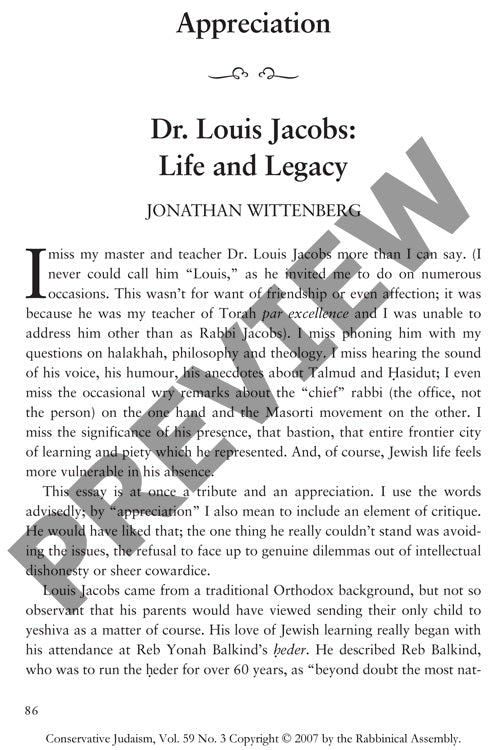Dr Louis Jacobs Life and Legacy
Couldn't load pickup availability
Rabbi Dr. Louis Jacobs emerged as Anglo-Jewry's most significant religious thinker by confronting a fundamental tension in modern Judaism: how to maintain authentic religious commitment while embracing critical scholarship. His intellectual journey from Orthodox yeshiva student to controversial theological pioneer illuminates broader conflicts between tradition and modernity in twentieth-century Jewish thought. Through biographical analysis of his educational trajectory and subsequent "Jacobs Affair" of the 1960s, this research examines how he developed a distinctive theological position synthesizing critical academic methodology with traditional Jewish observance. Jacobs advocated for intellectual honesty in addressing modern scholarly challenges to traditional beliefs about revelation and biblical authorship, while maintaining steadfast commitment to halakhic practice. His approach emphasized Judaism's dynamic nature and the ultimate unity of truth from all sources. Though his rejection by mainstream Orthodox institutions led to establishing the New London Synagogue and influencing the Masorti movement, he never achieved his desired Orthodox recognition. Through approximately fifty books and two hundred articles, Jacobs established a model of "traditionalism without fundamentalism" that continues to influence contemporary Jewish thought and institutional boundaries, demonstrating both the possibility and challenges of integrating critical historical methodology with deep religious commitment.

More Information
-
Physical Description
-
Publication Information
Published 2007
ISBN
-
Publication Credits
Jonathan Wittenberg

